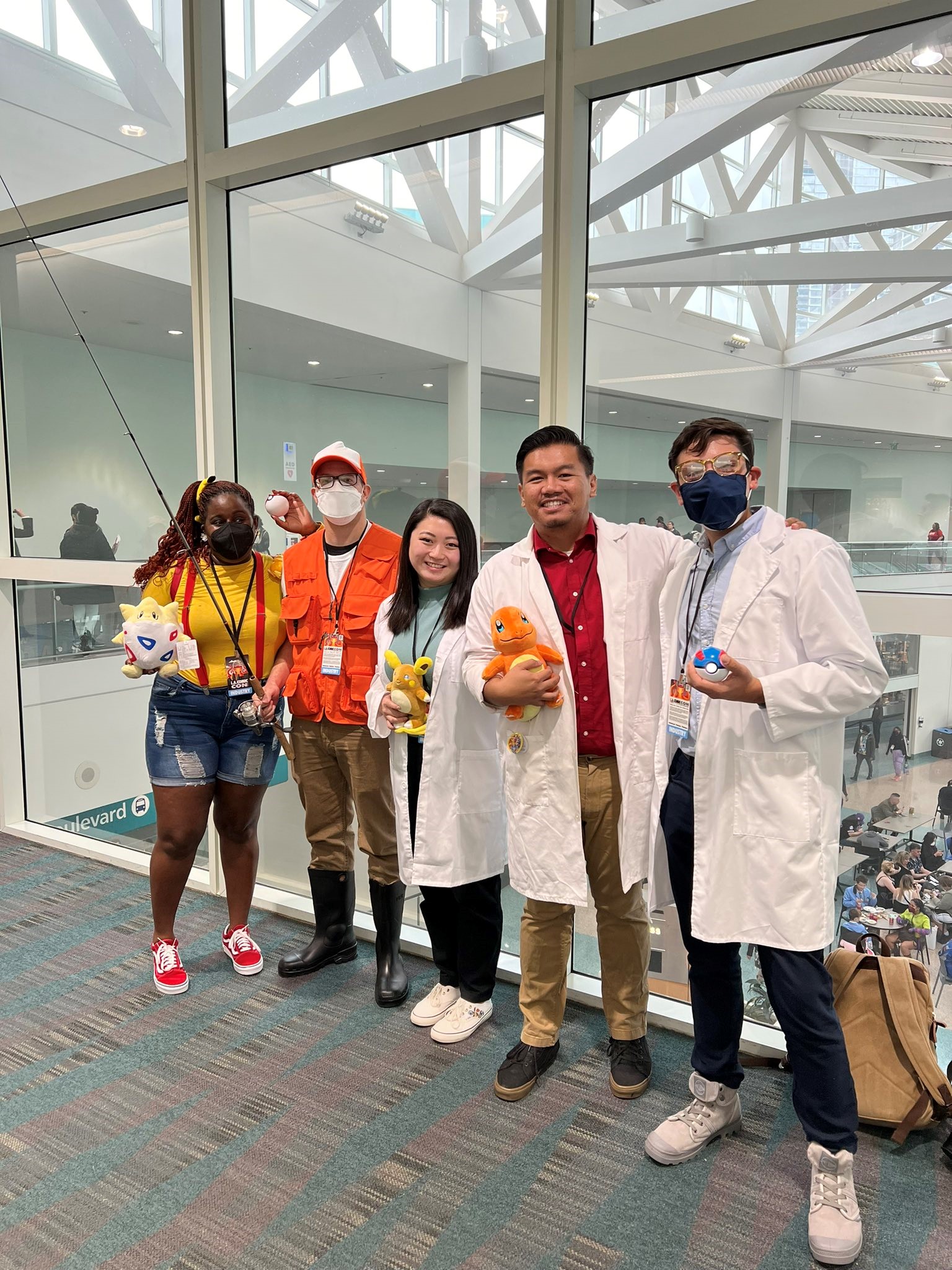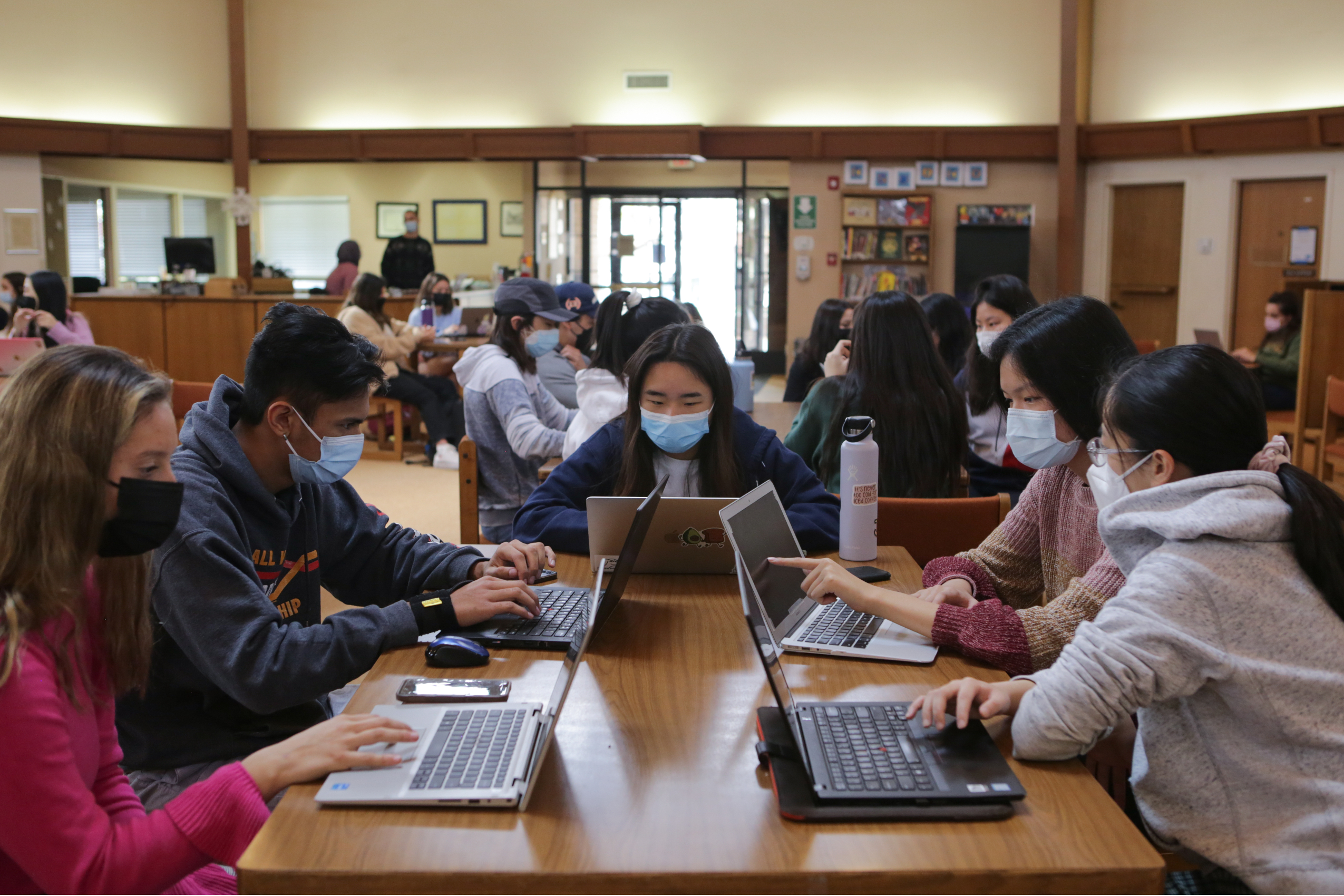Martin Luther King Jr. Celebration
October 13, 2020
By Taylor Stockdale
When I got the call last week inviting me to speak briefly this morning, I was actually traveling for the school in Atlanta, GA, the birthplace of Martin Luther King Jr. In viewing his childhood home, something I encourage you all to do if you have a chance, I was reminded of his modest upbringing and surroundings. I was reminded, too, of the repressive circumstances that existed for people of color in the South and throughout the nation in the 1930’s, 40’s and 50’s—the time when Dr. King was forging his beliefs, beliefs that would set the stage for the civil rights movement of the 1960’s.
I’m 57 years old, which to you may seem ancient, but to me it has gone by in the blink of an eye. My first interaction with issues of race and racism happened when I was in second grade; I remember it like it was yesterday. My family had moved from a very homogenous Navy town—white upper middle class—to the suburbs of Washington D.C. In Washington, I went from a very small, largely white, school to a large public school abundant with diversity. My teacher, an African American named Mrs. Pippen, was a standout teacher. Even at that young age, like most of you, I could tell a mediocre teacher from a great one, and I loved every minute of being in her class. As it was 1970, it was also at a time in our history when we adequately funded public education. At Lafayette Elementary School, we had a full music program, arts of all varieties, and other activities, too.
One day, Mrs. Pippen and several of her colleagues stopped teaching and called us all into the hallway. We marched outside, thinking it was some type of fire drill. But it wasn’t. We walked over to the big water fountain on the other side of the playground. The water fountain had two sides, one side had a sign above it that said “colored,” and the other side said “white.” On that day, Mrs. Pippen and her colleagues, with the Principal, took down those signs and made the entire water fountain open to everyone. In doing so, Mrs. Pippen and her colleagues delivered some of the most heartfelt talks I have ever heard. Again, I was in 2nd grade!!
The talks weren’t angry as one might well expect, but rather they were about their parents, and their parents before them, and their parents before them, who may well have been slaves. They talked about the power of legacy, the power of love, the power of overcoming generations of harsh injustice and horrific discrimination of all types. It was the first time I heard about Dr. Martin Luther King Jr. and all he stood for. We concluded by drinking from both sides of the fountain, all of us, and it was that way for the rest of the year and beyond. It was a beautiful moment, and literally as I was reflecting on it last week, your message arrived inviting me to speak today at the assembly. I thought to myself, Mrs. Pippen is surely looking down with a smile. And so, Dr. King’s legacy lives on in ways big and small. We reflect on his legacy today, and remember his determination to ensure liberty and justice for all—not just for the privileged. Liberty and justice for all humans on this earth.
As many of you may know, Dr. King’s teachings were rooted in his training as a Baptist minister. Still, he was also influenced heavily by Eastern religion and by his idol, Mahatma Gandhi—and even by Henry David Thoreau, who himself was influenced by Eastern thought. What each of these leaders and thinkers had in common was the concept of individual resistance to unjust authority.
Throughout his life, Dr. King gave a number of the most remarkable sermons and speeches ever delivered. And, while much attention is given to his “I Have A Dream” speech, my personal favorite is one he delivered when he was just 26 years old at the Montgomery Bus Boycott of 1955:
“To our most bitter opponents, we say, we shall match your capacity to inflict suffering by our capacity to endure suffering. We shall meet your physical force with soul force; do to us what you will, and we shall continue to love you. We cannot all in good conscious obey your unjust laws, because noncooperation with evil is as much a moral obligation as is cooperation with good. Throw us in jail, and we shall still love you. Bomb our homes and threaten our children, and we shall still love you. Send your hooded perpetrators of violence into our communities at the midnight hour, and beat us and leave us half dead, and we shall still love you. But be assured, that we will wear you down by our capacity to suffer. One day we shall win freedom but not only for ourselves. We shall so appeal to your heart and conscience that we shall win you in the process. And our victory will be a double victory.”
Now let’s just take a moment of silence and let those words and sentiments sink in…
These are the values we celebrate today. Are they religious? Yes, they are. Can those who do not look to religious sources agree with them? Yes, they can. Living in our moment of time, we must remember that when we demonize our enemies we are throwing a boomerang that comes back to us with ugly force. This lesson has always been a hallmark of Webb, part of our tradition, the most essential part.
Again, thank you for the privilege of speaking today.
Details
October 13, 2020
9:38 AM PDT
Similar Articles
-

Jan 24, 2021
Mark Torres, PhD ’06 Named 2021 F.W. Clarke Medalist
Dr. Mark Torres ’06, an assistant professor at Rice University, will receive the prestigious 2021 F.W. Clarke Award in July. The Clarke Award recognizes an early-career scientist for a single […]
-

Dec 07, 2022
Alf Museum Shares Science at L.A. Comic Con
The Alf Museum brought a taste of The Webb Schools to L.A. Comic Con this past weekend through the Cosplay for Science Initiative, sharing the “Galactic Archive” pop-up museum and […]
-

Jan 11, 2022
Webb Canyon Chronicle Receives Prestigious Crown Award
Webb’s student publication, the Webb Canyon Chronicle, has been named a recipient of the Columbia Scholastic Press Association’s prestigious Crown Award in recognition of its overall excellence. The award is […]



